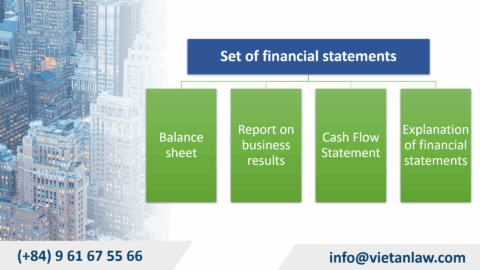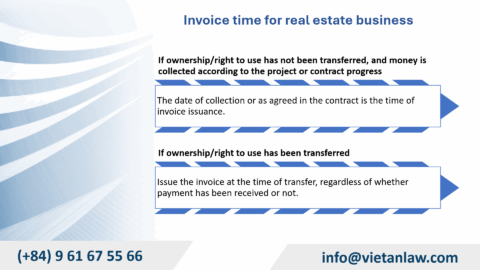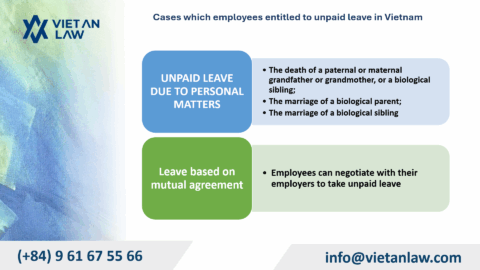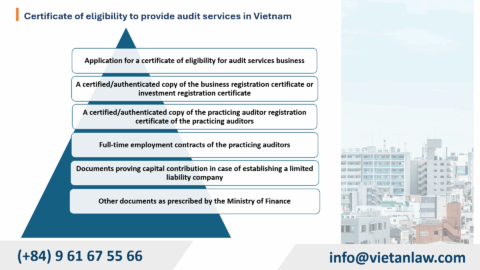In the context of rapid urbanization and increasingly narrowing land funds, the construction and renovation of adjacent works are becoming more common. Construction affecting adjacent buildings, such as wall cracks, subsidence, and structural damage, is increasing, leading to many complicated disputes. This article by Viet An Law will analyze the legal provisions on legal liability for construction affecting adjacent properties in Vietnam for investors and contractors when construction affects neighboring works, clarifying the legal basis and legal consequences of these acts.
Table of contents
Vietnamese law stipulates the obligations of owners and subjects with rights to property during the construction process. Specifically, Article 174 of the Civil Code 2015 stipulates:
“Article 174. Obligation to respect construction regulations
When constructing a project, the owners and holders of other property-related rights must comply with the law on construction, ensure safety. It may not build beyond the height and distance specified by the law on construction and infringe the legitimate rights and interests of owners of adjacent and surrounding immovable properties.“
Obligations of construction owners
This provision has important legal significance, establishing the obligation of the project owner to:
This obligation is the first legal basis for determining legal responsibility when construction affects adjacent properties. Compliance with construction regulations and standards is not only an administrative obligation but also a civil obligation, aiming to ensure the legitimate rights of neighboring real estate owners, meeting the fourth criterion of the obligation set out in Article 174.
During the construction process, if the owner fails to perform their obligations properly and causes damage to the adjacent property, the responsibility for compensation is stipulated in Article 605 of the Civil Code 2015:
“Article 605. Compensation for damage caused by houses and other construction works, or buildings
The owner, possessor, or person assigned to manage or use a house or other construction work must compensate for damage caused to others by that house or other construction work.
If the executor of the house or construction work is partly at fault that such the house or construction work causes damage, he/she must jointly compensate for such damage.“
Thus, the owner, the person assigned to manage and use the house or other construction work, must compensate for damage caused by the house or other construction work to others. When the contractor is at fault in causing damage to the house or other construction work, he must be responsible for compensation.
This provision establishes two entities that may be liable for compensation:
Liability for compensation may be the sole responsibility of the owner or a joint responsibility between the owner and the contractor, depending on the determination of the contractor’s fault in the particular case.
For example, in the case of cracking a neighbor’s wall, it means infringe “legitimate rights and interests of owners of adjacent and surrounding immovable properties” according to Article 174 of the Civil Code 2015, the owner of the construction work is responsible for compensation according to Article 605 of the Civil Code 2015. If the construction contractor is also at fault, he/she must jointly compensate. Currently, the Civil Code does not specifically stipulate the compensation level, therefore, the parties can negotiate to agree on the compensation level, based on the actual damage.
Compensation for construction damage to adjacent properties must comply with the general principles of compensation for non-contractual damages stipulated in Article 585 of the Civil Code 2015, including simultaneously meeting the following criteria:
For example, in the case of construction causing cracks, subsidence, or damage to adjacent properties, “actual damages” typically include:
Regarding the level of compensation, the parties are allowed to negotiate to agree on the level of compensation based on the actual damage that has occurred (usually through hiring a professional unit to assess the level of damage).
In addition to civil liability for compensation for damages, investors and contractors may also be held administratively responsible when construction affects adjacent properties.
According to the provisions of Clause 5, Article 16 of Decree 16/2022/ND-CP on administrative sanctions for violations in the construction sector:
” Article 16. Violation of regulations on the construction order
… 5. Impose penalties for organizing construction in a manner violating regulations on construction quality assurance, thereby causing depression, cracks, or damage to technical infrastructure or neighboring structure, or causing or potentially causing neighboring structure to collapse without causing damage to health or lives of other people as follows:
… a) A fine ranging from VND 30.000.000 to VND 40.000.000 shall be imposed in case of detached houses;
…b) A fine ranging from VND 50.000.000 to VND 60.000.000 shall be imposed on the construction of detached houses in sanctuaries, historical-cultural heritages, or other structures;
…c) A fine ranging from VND 80.000.000 to VND 100.000.000 shall be imposed on construction of structures that require a feasibility study of construction investment or an economic-technical report on construction investment.”
Thus, according to current regulations, the fine for construction activities causing subsidence, cracking or damage to technical infrastructure works and neighboring works is regulated differently depending on the type of work, with the highest fine being up to 40 million VND for individual housing works, and up to 100 million VND for large works requiring the preparation of a construction investment feasibility study report or a construction investment economic-technical report.
It should be noted that this administrative sanction is only applied in cases where the parties cannot agree on compensation according to the provisions of civil law and when the violation does not “causing damage to health or lives of other people“.
To avoid legal liability, investors need to take the following measures:
When a dispute arises over construction damage to a neighboring home, the process usually includes:
Construction Affecting Adjacent Properties dispute resolution process in Vietnam
Vietnamese law has established a relatively complete system of regulations on legal liability when construction affects adjacent houses, including civil liability for compensation for damages and administrative liability. These regulations aim to protect the legitimate rights of owners of adjacent real estate, while also placing high requirements on investors in complying with construction regulations.
However, in practice, determining the extent of damage, the causal relationship between construction activities and damage, as well as the specific responsibilities of the parties are still difficult. Therefore, to minimize disputes, the parties need to proactively apply preventive measures, strictly comply with construction laws, and prioritize conciliation agreements when disputes arise.
The above is the legal information that Viet An Law sends to you through the article on the topic of legal liability for construction affecting adjacent properties in Vietnam. If you need advice on construction law, civil law, compensation for damages, please contact Viet An Law for timely and effective support!




